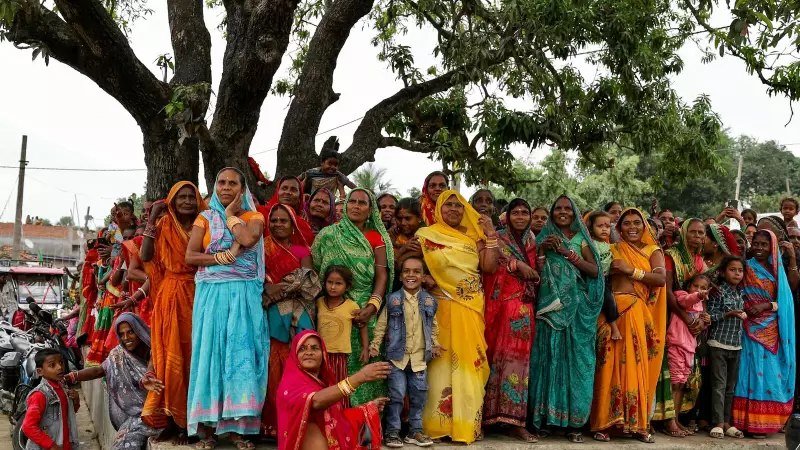
In the heartland of Bihar, a quiet political transformation is underway, driven by an unexpected force: women voters. The state that once followed traditional voting patterns is now witnessing a fundamental shift as women emerge as the new kingmakers in Bihar's political landscape.
The Jeevika Phenomenon: More Than Just Economic Empowerment
At the core of this change lies Jeevika, Bihar's flagship poverty reduction program that has evolved into something much larger than its original economic mandate. What began as self-help groups for financial independence has transformed into a powerful network of politically aware women who understand their collective strength.
These women, affectionately called "Jeevika Didis," have moved beyond mere beneficiaries of government schemes to become active participants in the democratic process. Their journey from household confines to polling booths represents one of the most significant social changes in contemporary Bihar.
The Numbers Don't Lie: Women Outpacing Men at Polling Stations
Statistical evidence confirms this trend isn't just anecdotal. Recent assembly elections have consistently shown higher women voter turnout compared to men across multiple constituencies. This isn't a one-off phenomenon but a sustained pattern that political parties can no longer ignore.
The gap isn't marginal either. In many constituencies, women's participation has surpassed men's by significant percentages, indicating a fundamental shift in electoral engagement patterns.
Beyond Traditional Voting Blocs
What makes this development particularly noteworthy is how it cuts across traditional voting considerations. Unlike caste-based or community-driven voting patterns that have long dominated Bihar politics, women voters are demonstrating issue-based preferences.
Their priorities are clear and practical: better education facilities, healthcare access, safety, and economic opportunities for their families. Political parties that fail to address these concerns are finding themselves on the wrong side of this powerful voting bloc.
The Political Awakening
The transformation is visible on the ground. Women are no longer passive followers of family voting decisions. They're discussing policies, comparing manifestos, and making independent choices. Jeevika group meetings have become informal political discussion forums where women analyze what different parties offer.
This political consciousness has made women voters more demanding and discerning. Empty promises and last-minute sops no longer work as effectively with this increasingly aware electorate.
Changing Political Strategies
Political parties across the spectrum have taken note. Campaign strategies are being redesigned with specific outreach programs targeting women voters. Manifestos now include women-centric policies prominently, and public meetings feature women speakers addressing women-specific issues.
The Nitish Kumar government's initiatives toward women empowerment, including liquor prohibition and bicycle schemes for schoolgirls, are seen as responses to this growing political influence.
The Road Ahead
As Bihar continues its political journey, the role of women voters is only set to grow stronger. Their increased participation is bringing new issues to the forefront and changing how politics is conducted in the state.
This silent revolution represents the maturation of Bihar's democracy, where half the population is finally finding its voice and using it to shape their future. The message to political parties is clear: ignore women voters at your own peril.






